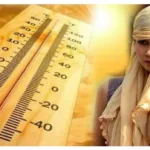Patna: In the upcoming Lok Sabha elections, family heads are emerging as a major hindrance to the voting process. A survey conducted by the Election Commission of India sheds light on the reasons behind people refraining from casting their votes in Bihar during the previous Lok Sabha elections. The survey explores 243 assembly constituencies in Bihar, revealing intriguing insights into both the highest and lowest voter turnouts.
The report prepared by the commission discloses that a staggering 74.8% of voters did not participate in the electoral process due to the unavailability of their EPIC cards (voter ID cards). While the absence of EPIC cards emerged as a major deterrent, the survey highlights that numerous other documents, such as voter photo identity cards, driving licenses, MNREGA cards, Aadhaar cards, and ration cards, could be used for voting.
The survey identifies 16 reasons why Bihar voters abstained from casting their votes. A significant 4.6% of voters faced obstruction from their family heads, preventing them from exercising their right to vote. Additionally, long queues at polling booths on election day deterred 3.8% of voters from participating. Another 3% cited their names missing from the voter list as a reason for abstaining.
The report further reveals that 2.4% of voters lacked confidence in the electoral democracy, while 2.5% refrained from voting due to influence from community or religious leaders.
In expressing dissatisfaction with candidates, 2.1% of voters claimed that the absence of credible candidates in their constituencies discouraged them from voting. The survey also highlighted several other reasons for abstaining, including lack of booth information, distant polling booths, and a belief that their vote wasn’t essential for democracy.
Notably, some voters prioritized caste considerations, with a few stating that the absence of a candidate from their caste led them to abstain from voting. Others argued that no change was needed, providing no motivation for casting their ballots. Some individuals refrained from voting due to not residing in the election area, while others claimed a lack of information on election day.
Ultimately, the survey underscores the diverse factors contributing to voter abstention and emphasizes the need for continued efforts to ensure maximum voter participation in the democratic process.







